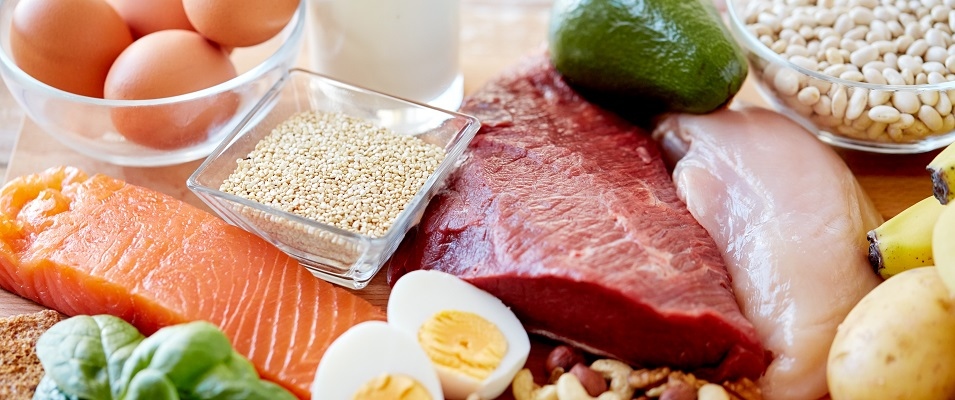
How many of us, in times of stress, will reach for something to eat—for snacks, for drinks, maybe for something sweet? We might not even think about doing it. Instead we find ourselves polishing off that old piece of cake, opening a bag of chips, or grabbing a pop without really considering why. We often throw around terms like “stress eating,” usually with a chuckle and a shrug of the shoulders as if to say, “What can you do?”
But how often do we stop and ask ourselves a few simple questions? Why do we tend to eat more when we’re stressed? Why do certain foods make us feel better when we feel anxiety? And is there a way to be more mindful about what we eat to improve our mood and mental health?
As usual, the answers are in our brains, and in the long process of biological evolution that gave them to us.
We spent hundreds of thousands of years at the mercy of natural selection, the process by which living organisms adapt to their environment and change to become better able to survive, thrive, and pass on their genetic material to the next generation. Simply put, traits that are beneficial for our survival stick around, and traits that are not beneficial tend to go away.
Unsurprisingly, eating food is beneficial for our survival, so we have evolved some powerful biological urges to eat! This is also why we feel psychological discomfort when we have been hungry for too long. Our brains are trying to help us survive, driving us to get food when we feel like we’re starving.
So our urges to keep eating in order to survive make sense, certainly. But why do we gravitate towards foods that are generally more unhealthy during times of stress?
Fat, salt, and sugar… large amounts of these three substances are relatively rare in nature, and they are essential to our survival. They help our bodies and brains to grow and replace damaged cells (the human brain is roughly sixty percent fat). When our brains encounter fat, salt, and sugar, it activates in us a similar drive as when we’re starving—a sudden urge to consume as much of those fats, salts, and sugars as we can.
When we do consume these substances in large quantities, our brains reward us by flooding us with dopamine and endorphins—chemicals that give us feelings of pleasure and contentment. This neurochemical reward is a powerful motivator.
Now, it’s one thing to give in to the urge to consume an entire bush of berries or a honeycomb when you’re living off the land; it’s quite another to give in to that same urge when walking through the bulk foods aisle at the supermarket when we could quite literally eat ourselves into type-2 diabetes. So most of us have been socialized—by parents, peers, and society—to show some moderation.
However, when we experience significant stress, our bodies and brains get ready to take “heroic measures.” That is, we prepare to engage our fight, flight, or freeze response. We’re getting ready to do something out of the ordinary, and these actions are going to exact a toll.
How better to prepare for the requirements of sudden action than to consume as many calories as we can? And since many of those rare and precious fats, salts, and sugars will be burnt up in the physical activity taken during the fight, flight, or freeze response, it makes sense to stockpile them in advance.
This is why our brains give us the powerful urge to consume high-calorie foods when we’re stressed. And it’s why so many of us turn to ice cream—a source of all three substances—when we’re feeling upset!
Unfortunately, consuming diets heavy in fats and sugars can lead to not only physical health problems but mental health problems as well. Problems with mood can result from an excessively high-calorie diet, and overconsumption of saturated fats has been linked to poor cognitive processing and neurological dysfunction later in life.
We simply don’t need as many of these substances as are readily available to us in the modern world. On the other hand, neither have we been designed to function without them completely. Depriving ourselves of food in order to lose weight—for example, skipping meals or avoiding fats and sugars entirely—can actually cause depression. We need to employ some moderation when it comes to consuming these substances we have evolved to crave.
Managing your fat, salt, and sugar intake doesn’t have to mean depriving yourself. It might be as simple as being mindful about where these substances come from. For instance, eating fruit can be a good source of sugars in amounts our bodies will be more used to taking in—unlike candy or sweets, which are often made from concentrated corn syrup. In addition, some fats, such as omaga-3 fatty acids, which are found in many fish, walnuts, and certain eggs, are associated with improved brain health. In fact, increased consumption of fish in general has been linked to lower levels of depression.
We can also pay attention to what science teaches us about how our bodies and brains work. For instance, serotonin (the brain chemical that helps us to feel happy and well-adjusted, and may help us avoid depression) is primarily produced in the gut. More than ninety-five percent of our serotonin comes from the gastrointestinal tracts, and research shows that diets higher in vegetables, fruits, unprocessed grains, and seafood can lead to lower lifetime levels of depression.
More research is needed, but everything we’ve learned so far tells us that our diets and how well our brains function are deeply linked. There’s so much more to learn!
Making healthy changes to our diets may require some help. In order to make the best possible decisions about what you eat, consider reaching out to a dietician. They will be able to help you make good decisions about what you eat and set you up for long-term health both for your body and for your brain.


















